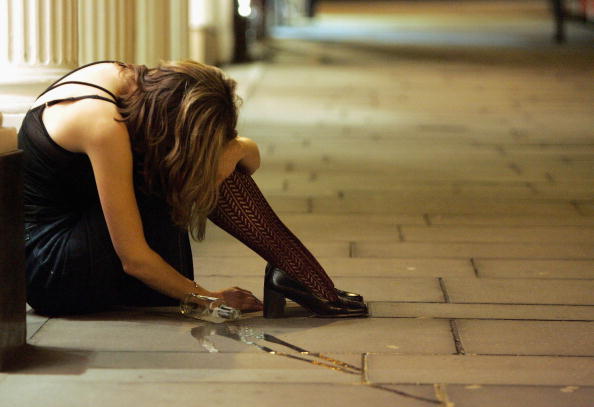Students call for universities to take action against drunken sexual harassment, Drinkaware research reveals
Drinkaware CEO says universities need to reinforce that 'if a behaviour isn’t acceptable sober, it isn’t acceptable drunk'

Your support helps us to tell the story
From reproductive rights to climate change to Big Tech, The Independent is on the ground when the story is developing. Whether it's investigating the financials of Elon Musk's pro-Trump PAC or producing our latest documentary, 'The A Word', which shines a light on the American women fighting for reproductive rights, we know how important it is to parse out the facts from the messaging.
At such a critical moment in US history, we need reporters on the ground. Your donation allows us to keep sending journalists to speak to both sides of the story.
The Independent is trusted by Americans across the entire political spectrum. And unlike many other quality news outlets, we choose not to lock Americans out of our reporting and analysis with paywalls. We believe quality journalism should be available to everyone, paid for by those who can afford it.
Your support makes all the difference.High numbers of students are experiencing drunken sexual harassment on nights out while at university – yet feel as though they can’t turn to staff for support, according to an alcohol education charity.
Drinkaware interviewed just over 2,000 students to find 54 per cent of females and 14 per cent of males had received inappropriate sexual comments, abuse, or inappropriate sexual touching on a night out in the last 12 months.
46 per cent admitted they do not know their university’s stance on drunken sexual harassment, and only 34 per cent felt very confident their institution would believe them if they reported an incident. Startlingly, only one per cent said they told university authorities, student welfare, or counsellors, adding how they’d rather tell a friend or partner.
Now though, three quarters of respondents say universities should take disciplinary action against perpetrators, with over half (61 per cent) wanting their university to campaign against it. Another 56 per cent say there should be counselling for those affected.
Watch the charity’s latest You Wouldn’t Sober, You Shouldn’t Drunk advert:
CEO of Drinkaware, Elaine Hindal, described how students have told the charity time and again that drunken sexual harassment is a common and unwelcome part of their night out – yet they don’t feel empowered to stand up to it.
She said: “Touching another person in a sexual way without their consent is legally defined as sexual assault. It’s a criminal offence and being drunk is no excuse for it.”
Highlighting how universities are well placed to support students who have experienced unwanted sexual attention – and to campaign against it – Ms Hindal added: “That’s why we’re encouraging universities and young adults to reinforce the message that if a behaviour isn’t acceptable sober, it isn’t acceptable drunk.”
The charity’s research has been revealed on the day it launches its You Wouldn’t Sober, You Shouldn’t Drunk campaign which aims to address sexual harassment – like groping and inappropriate sexual banter – which many young adults say they often experience when out.
Launching in cinemas across the North West of England, the public is being invited to join in with the conversation at #GropeFreeNights.
If you, or someone you know, has been affected by any of the issues in this article, help and support is available here.
Join our commenting forum
Join thought-provoking conversations, follow other Independent readers and see their replies
Comments